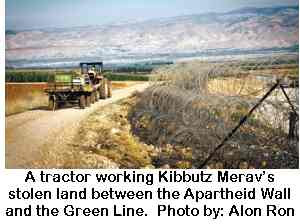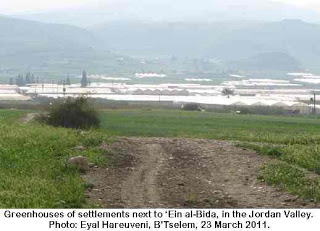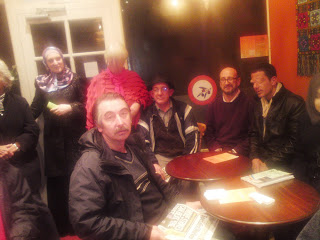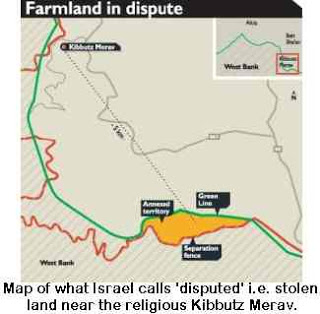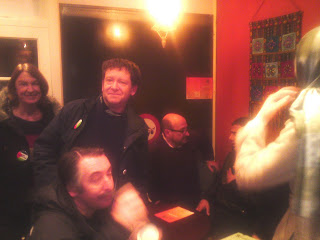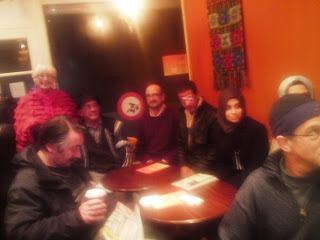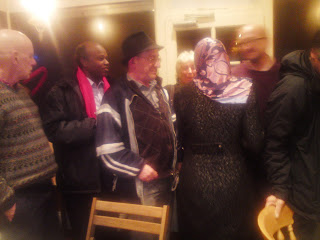When Israel occupied the West Bank and Gaza in 1967 Yigal Allon, the then Foreign Minister, produced the Allon Plan. It was based on the ‘security’ needs of Israel and the purpose, then as now, was to divest itself of the people whilst keeping the land and resources. The intention was to annex the Jordan Valley itself, East Jerusalem and what the Gush Etzion bloc.
From the very start 70.5 km2 of land around Jerusalem was annexed and integrated it into “Jerusalem municipality”. In the intervening 40 plus years, Israel has surrounded Jerusalem with huge settlements, in direct contravention of international law, and the building is still continuing today. If left unchallenged the settlements will eventually cover a vast area stretching right across to Jericho in the Jordan Valley, with Palestinians being wiped off their land in the process.
During the same period Israel has taken control of 95% of the land and 98% of the water resources in the Jordan Valley. It has not yet legally’ annexed the Jordan Valley but in practice this is exactly what has happened.
Illegal Israeli settlements in the Jordan Valley are continuing to take more and more Palestinian land, supported by the Israeli Military Civil Administration.
At the same time there is a growing Palestinian movement to challenge Israel through direct action, and developing local infrastructure. This is inspiring a network of international organisations to work in solidarity with them. We are just one small part of that network.
Brighton PSC hosted a speaker, Mahmoud, who had come over from Tubas. Despite having a visa, he was held by British immigration officials at Calais for 7 hours and not told why his visa had been cancelled nor indeed by it had been reinstated. Why did this happen? Because what these racist officials described as ‘inconsistencies’ in his visa application i.e. he also worked on a farm as well as being a project manager. He hadn’t mentioned the former!
It was only thanks to the intervention of Caroline Lucas MP that Mahmoud was able to continue his journey and there is little doubt that Israeli ‘Intelligence’ played its part in him being singled out for harassment. After being held for 7 hours, without any information being provided, he was not told the visa was cancelled or reinstated, he was allowed to go on his way.
In Brighton’s first Palestinian café, run by a PSC member Adam, a packed meeting heard Mahmoud speak, with the aid of a translator Fatih, about the conditions in the Jordan Valley. Virtually no Palestinian construction or infrastructure is allowed – no homes, schools, hospitals, roads can be built and schools that have been built or extensions added are demolished. Water pipes pass underneath Tubas, the main town, but no Palestinian can touch the water. Wells can only be dug to a certain depth, preventing the irrigation of Palestinian fields, unless you get permission to dig deeper. Permission is never granted. Yet the settlers have unlimited access to fresh water.
Nor can Palestinian farmers let their animals graze near the settlements and thereby indirectly benefit from the water because they will be detained and the animals confiscated.
Farmers therefore face two problems. One is lack of water to irrigate crops and the other is that even if they manage to harvest the crops they cannot get them to market easily, because of Israeli checkpoints that deliberately delay the lorries, often meaning the crops rot before they can be sold.
Despite the de-facto annexation spirits are high and people are determined to resist. Merely living on one’s land is in itself part of the struggle. Israel he said, has a plan. And that plan is expulsion or transfer. The Palestinians are surplus to requirements.
Mahmoud’s main role is to rehabilitate buildings which have been demolished or damaged by Israel, along with a group of people. He is, as he emphasised, not the ‘boss’ but also one of the workers. The Jordan Valley is Area C under the Oslo Accords and Israel considers it a ‘security zone’ where there is no Palestinian development. Palestinians main role is as hewers of wood and drawers of water on vast Israeli agricultural settlements.
In response to one question, about the impact of the Boycott Mahmoud said yes, the international Boycott of Israel had been felt. In particular the collapse of Agrexco into bankruptcy but also the greater attention paid to the treatment of Palestinian workers, e.g. refusal to pay people for when they have worked and the exploitation of the lack of Palestinian bargaining power.
Yet Mahmoud was nonetheless optimistic.
Tony Greenstein
